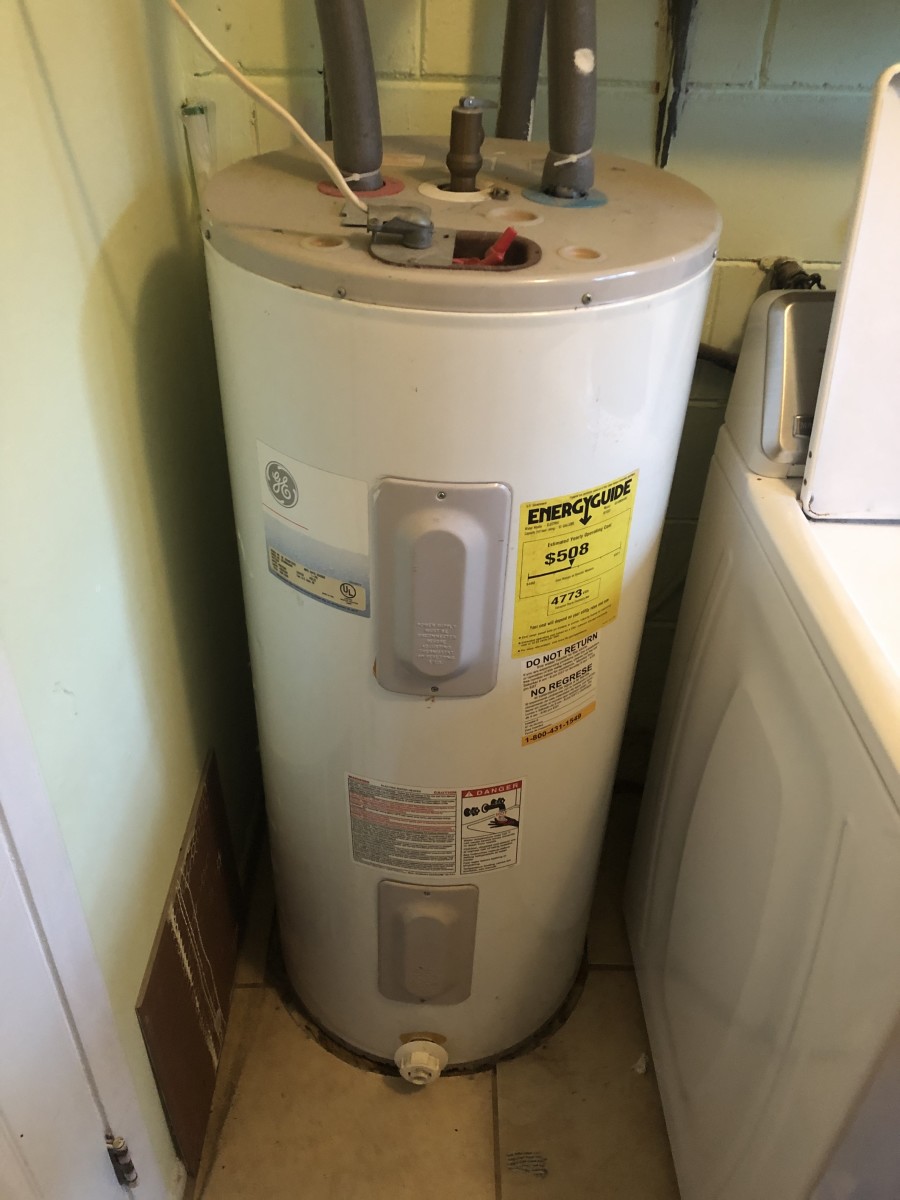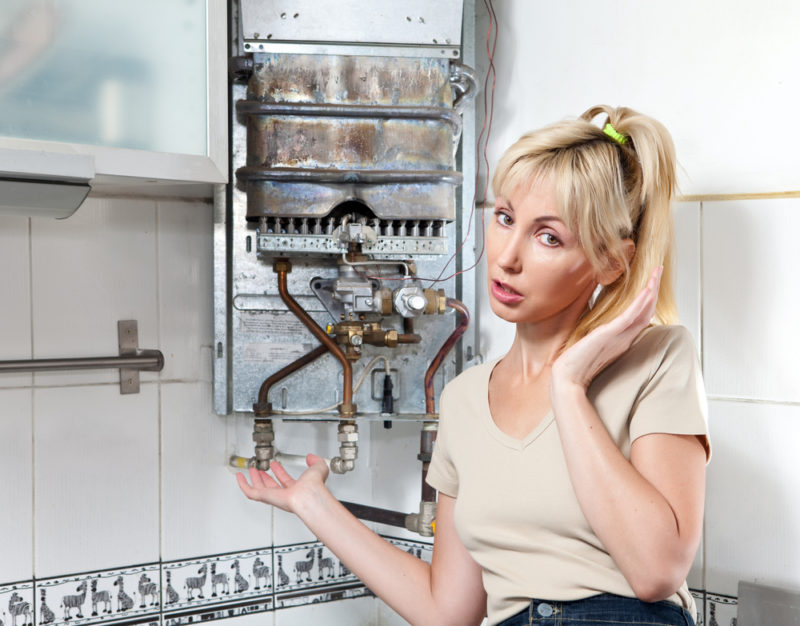Crucial Procedures for House Owners Dealing with Broken Heating Units
Crucial Procedures for House Owners Dealing with Broken Heating Units
Blog Article
Are you currently trying to find ideas around Broken Water Heaters?

Whether it is situated in the cellar or a different room, broken water heating units can trigger anxiety. Having no warm water supply is additionally troublesome.
Shut Off Power Source
Before calling the plumber, turned off a gas water heater by turning the temperature dial. This is usually located at the top of the thermostat. If you have a model that works on electric power, switch off the circuit breaker. This will protect against electrocution, specifically if there is a leakage as water is a conductor. Typically, the heating element turns off when the water hits a specific temperature. With a busted storage tank, it might malfunction. Cutting it off ensures you stay secure.
Cut Off the Cold Water Supply
Cut off the storage tanks tap water supply from the source. This goes from your major water line right into the tank. When your container remains in good condition, the cold water quits filling when the container is full. Given that it is leaking, the water will certainly continue to flow. Shut the valve discovered at the top of the heating system. Rotate this clockwise to close it off. If you can not find it or reach it, you have to turn off that major water system line outside your building.
Call the Plumber
After doing the very first two safety steps, you need to call your plumber to find today to deal with a burst water heater. Keep in mind that your system will not just conk out drastically overnight. There are typically signs that your aging water heater has debris build-up in the interior. Remember of the following:
Don't wait on significant flooding to call the plumber. By then, you will certainly need to spend even more to restore your residential property. Instead, as quickly as you identify these indications, have actually a specialist involved check your hot water heater say thanks to. Commonly, hot water heater have a life expectancy of about 8 to 12 years. With normal evaluation and also maintenance, you can lengthen its life.
Clean Up Building
After calling the plumber, file damage by making note and also pictures so you can claim your property owner's insurance coverage. From there, begin the instant clean-up. Secure any kind of vital personal belongings to avoid further saturating. Eliminate any kind of standing water to avoid mold and mildew and mold growth. If you have a completely submersible water pump, use that to drain the water. Otherwise, the conventional pail approach will additionally work. Try to mop out every little thing, including baseboards as well as wall surfaces. If you have an electric follower and dehumidifier, keep them going to maintain air distributing. This will certainly help discourage mold and mildew development.
Remember, if you observe any problems with your water heating system, call the pros right away. You can not take this trouble lightly since a damaged thermostat can elevate water temp to an alarmingly high level, leading to unexpected burns.
Whether it is situated in the cellar or a different area, busted water heating systems can create stress and anxiety. Prior to calling the plumber, closed off a gas water heating system by transforming the temperature level dial. After doing the very first two safety actions, you should call your plumber to come right away to deal with a burst water heating system. If you have a completely submersible water pump, utilize that to drain the water. Bear in mind, if you observe any type of issues with your water heating system, call the pros right away.
Is My Water Heater Broken?
The Water Heater is Old
No appliance will last forever. This includes a home’s water heater. During its lifespan, residents are going to face a situation where a new water heater installation will be necessary. The biggest problem with this is that most people are not sure when their water heater expires. Not knowing this can lead to serious risks if the unit begins to act up due to old age.
Most makes and models of water heaters will last between eight and 10 years. While 10 years is the age when water heater replacement is highly recommended, the need to replace the unit may occur before this time or after. If the unit doesn’t show any symptoms of a problem, it is a good idea to replace it at the 10-year mark (from the manufacture date).
Some of the symptoms that indicate a new unit is needed include rusting, leaks, noises, and a failure to heat up the water. Also, note that not all units have a 10-year life expectancy. The main exception to this rule is that a gas unit will last for six to eight years.
Rusty Heater Inlet Valve or Water
While steel is the strongest material on earth, it does have a weakness – rust. If corrosion occurs on a steel surface, it will begin to spread and eat through the steel in certain areas. On water tanks and pipes that are made of steel, rust is a warning sign of an impending leak.
The issue for many is trying to figure out if the rust is coming from the water heater or the pipes that lead to the faucet. If rust is seen, it is a clear indication that water heater service from the professionals is needed.
If rusty water appears out of the faucets in the bathtub or sink, it likely means a rusty water heater. If there is rust near the water inlet or the pressure relief valve, rust has likely developed inside the tank. If tap water appears rusty, it may be an issue with the pipes.
Strange Sounds from the Water Heater
Are there strange sounds coming from the tank? As a water heater gets older, rumbling noises may develop and get louder and louder as the water in the tank heats up. In homes where large amounts of hot water are used, the issue is likely going to be even more obvious when more serious issues arise. If there is a strange or loud noise coming from the unit, it is probably because of sediment buildup. A good way to remedy this problem is by flushing the heater. If this does not work, then a new unit may need to be installed.
Leaks
As a water heater gets closer to the end of its useful life, there is a higher chance there will be water around the tank. If there is water, this usually means leaks are occurring. Based on where the unit is located in the home, a leak may result in serious property damage.
Leaks are usually caused by expansions in the metal tank. The expansions occur as time passes and as the inside body of the tank is exposed to multiple heating cycles per day. When a fracture forms, the gap will be slight enough to hold the water in; however, in more serious situations, this will not be the case. If the tank is idle, the water will not leak but when the metal expands during each heating system, small amounts of water will get through the gap.

I stumbled upon that content about How to Avoid a Broken Hot Water Heater while surfing the web. Sharing is nice. You just don't know, you could be doing someone a favor. I recognize the value of reading our article about How to Avoid a Broken Hot Water Heater.
Call for expertise! Report this page